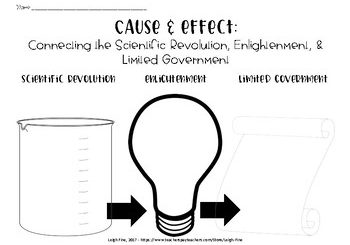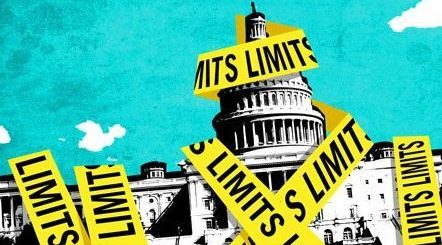Any Nation’s Financial Troubles Easily Vanquished

An End of Tyranny
Argentina, Venezuela and many nations are caught in a financial quagmire. Negligible financial and economic problems eventually festered, swelled, and irrupted, presently attaining a grim and destructive form. Is there an answer to the endless crises faced by embattled nations? The answer is yes. However, one will not find it by looking within the tired, obsolete conventions of economic thought, theory and practice.
For the many struggling nations there is little need to recite the tragedy on a national or individual level. Imagine a nation whose system of provision of goods and services has disintegrated. The stock of money is greatly enlarged by authorities, creating inflation, instability, and ruined savings. Many exchanges of goods are completed by barter. Supplies of every conceivable kind are scarce and evaporating. Crime is ubiquitous as is government tyranny. Banks are threatened perpetually by mass withdrawals. People flee to the borders of adjacent nations. Civil law and order fracture and collapse. A military or police presence is precarious if members are unpaid, and intimidating if they are. Electricity usage is restricted or fails. Water supply is intermittent or ceases. Unemployment, hunger, bankruptcy, misery flourish. For those still employed, the wages of many remain unpaid. Public revenues are in marked decline whilst public demands and boisterous protests to action mount.
During the relentless march to this extremity, where are the salutary and certain remedies to vanquish a once paltry nuisance grown so potent and perilous?
When one wishes to test the effectiveness of weaponry, he looks to the battlefield and engagement to assess impact and results. From observation, economics must be in the very worst state as its practitioners seem incapable of advancing 1 simple idea to erase or diminish even the most mild of ailments.
However, an assuredly clear and easy answer does exist for afflicted nations. Government unwittingly possesses a compelling expedient, novel and domestic, over which they exercise full control and which should eradicate much adversity and restore peace, industry, and prosperity. But one must reach outside conventional economics to see the solution whose beneficial effect will arrive broadly within hours, and not piecemeal over years.
All a troubled nation or jurisdiction need do is set all tax rates to zero – permanently; A novel and inexplicably odd measure, but certainly curative of rebellion, violence, destruction, and inertia, and provident of wealth and prosperity.
3 easy steps explain everything!
Step 1: There is a very bad premise operating in modern economics, specifically in the foundations of Public Finance. For demonstration I simply ask what is the present annual deficit of the US Federal Government? It takes in approximately $3 trillion in tax revenues and spends about $4 trillion. The figures may be more or less, but let us just work with these. Everyone: economists, bankers, professionals, perhaps yourself, would say $1 trillion. WRONG!!!!
As government possesses no hoard of money, no assets, no financial instruments with which to meet its daily needs. Government does not fund government. It does not fund public expenditures. It never has and it never will. Thus, the US Government’s deficit is actually $4 trillion, not just the misconstrued $1 trillion.
It is the Taxpayer: his property, assets, income, that fund government – all of it. To fully understand public finances, one must heed this generally neglected fact.
To Read More On This Step – Click Here
Step 2: A community of Taxpayers or resident citizens funds the whole of government expenditures, and specifically the aggregate of their assets, incomes, property, and money, or what I call ‘That Which Funds Government’ (TWFG). Thus, one must examine this aggregate in order to answer basic questions in Public Finance. When done one quickly understands that it makes no difference if government taxes or borrows to fund public expenditures – a remarkable conclusion.
Let us say that a government requires $100 for some public undertaking. It may tax or borrow.
In taxing the sum, $100 flows from TWFG to the government account never to return. Very simple.
Let us say that a government borrows the sum. $100 flows from TWFG to the government account only to return when the created IOU is settled. The only difference is that Borrowing generates paperwork whereas Taxation doesn’t.
In creating a public debt a bond is issued in the amount of $100 by the government. This bond counts as a claim, liability or public debt against the contents of TWFG. However, it also counts as an asset in TWFG because resident citizens now hold the debt. As the $100 liability claimed against TWFG equals and exactly nullifies the $100 asset contained within TWFG, TWFG is unaltered in the transaction.
Let us say the government allots interest on the public debt, say $10 on the $100 debt. The interest increases the public debt or liability claimed against TWFG by $10 to $110. But as the public debt is held by resident citizens in receipt of interest, the contents of TWFG rise by the same amount of $10 to $110. With public debt claimed against TWFG matching exactly the rise in assets held in TWFG through payment of interest, TWFG again remains unaltered in the transaction.
Lastly, the government decides to extinguish the public debt, which stands at $110, by taxing. The government recalls the outstanding bonds of $110 and cancels them. The public debt of $110 claimed against TWFG is extinguished along with the asset or public bonds of $110 held within TWFG. Funds of $110 transfer from taxpayers to lenders, moving from one part of TWFG to another. With equivalent asset and liability of $110 erased and the funds transfer of $110 kept within the bounds of TWFG, TWFG is unaltered in the transaction. Therefore, the reduction of debt bears no perceived benefit for TWFG.
Whether taxed or borrowed, $100 leaves TWFG to fund public expenditures. And as demonstrated each of the operations in Borrowing: creation of a public debt, addition of interest to the public debt, and erasure of public debt, leaves TWFG unaltered. Thus, one must conclude that there is no difference whether a state borrows from or taxes its resident citizens in order to fund public expenditures.
To Read More On This Step – Click Here
Step 3: Taxation bears immense costs which disappear with Borrowing, leading to the conclusion that it always best that government borrow instead of tax – a most bizarre result.
Firstly, a tax is a deterrent, penalty, or fine. It deters one from doing what he normally would do were there no tax. The instrument used to raise funds for public expenditures is used similarly to penalize the unlawful, speeders, criminals. As with criminals crushing fines or tax rates discourage and chase away the most productive people and firms among us, leaving all poorer. If the government should remove or lessen that deterrent, people and firms, ceding far less to government, will have more money with which to invest, consume, retire debt, and save.
Secondly, thoughtless confiscation of wealth invariably sires a system of corruption, inequity, squander, and maladministration. Government operates on the principle of expenditure, not on providing estimable public services. Along with valued efforts government engages in the provision of politically useful, but often dubious, harmful, and barren programs.
By opting for full Borrowing for all public expenditures instead of Taxation, the government, with capital charge imposed, would have to borrow funds instead of eagerly and obnoxiously confiscating them, daily entering the financial markets. With taxpaying slaves transformed into Public Bankers, the people or resident lenders would become the arbiters of which public expenditures are worthy and deserving of funding, and which are unworthy and deserving of rejection.
One should see the costs of government to decline and drastically. Let us say that a government spends $13 billion per year under Taxation. With Borrowing that sum declines to $7.0 billion as squander, overregulation, and corruption is purged.
The collective box of assets, property, incomes known as That Which Funds Government or TWFG gains an asset of $13 billion, the sum no longer taxed, consisting of $6.0 billion in cash and $7.0 billion in public bonds. TWFG then incurs a liability of $7.0 billion in bonds issued. This leaves TWFG enriched by $6 billion ($13B – $7B).
And do recall that the deterrent effect of Taxation evaporates with its abolition. If the increases in productivity and growth from shedding deadweight costs of Taxation are calculated and included, wealth would surge steeply. It is very conservatively reckoned that the assets of TWFG by at least a further $6 billion per year.
| Assets Gained | Liabilities Incurred |
| + $7 Billion pub. bonds held | + $7 Billion pub. bonds issued |
| + $6 Billion cash | |
| + $6 Billion deterrent erased | |
| Total + $20 Billion | Total + $7 Billion |
Increased wealth: ($20B – $7B) = $13 Billion
With such results it is easily conceded that Taxation, a penalty, and Borrowing, an inducement, possess little equivalence as a means of raising funds for public expenditures. With Taxation and its immense costs erased, full public Borrowing would make any jurisdiction blessedly and incomparably wealthier.
To Read More On This Step – Click Here
So why does a community or nation tax with all its inherent and punishing costs when it can borrow, escaping Taxation’s inherent ills and unleashing great wealth for its citizens? I predict this very advanced idea soon will be of service in rendering the stagnant, overwrought fields of economics once again fertile. Puerto Rico, Venezuela, Africa, North Korea, China: the way is clear!



